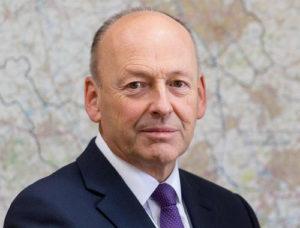
CCN Latest News, CCN News 2020 | 28 March 2020

The County Councils Network (CCN), which represents those 36 local authorities, says that those councils have outlined a range of their services that will have to be stopped or significantly scaled back due to the outbreak.
Those councils, which cover some 26 million people, are urging residents to understand that the changes will help save thousands of lives and protect staff from the spread of the virus.
After a week of widespread disruptions, closures, and changes to key local services due to the Coronavirus outbreak, councils say further changes may be needed. This is because they are reprioritising their efforts to focus on the national endeavour.
Below, watch a clip of the CCN chairman Cllr David Williams on BBC News today discussing how councils are changing services but ‘intensifying’ their Coronavirus efforts.
This week, councils began to set aside hundreds of millions to purchase thousands of new beds to ensure that those requiring social care are released quickly from hospital, to free up more space for Coronavirus patients. This includes one example of a council taking over a hotel to use its beds to free up hospital wards. Councils are also setting aside funding to ensure that local care homes to do not go out of business due to the outbreak.
Changes to services have also been necessary to ensure social distancing in public places.
The CCN said that these efforts are alongside county authorities taking the lead to set up community hubs to help with ‘shielding’ the most vulnerable, redeploying staff to help with efforts to marshal volunteers, and to ensure those under enforced self-isolation get food and support with living their lives.
Council leaders say they are determined to keep other key services running for as long as possible, and many are offering digital versions of these services, such as online library archives and Skype calls to residents in care homes.
Cllr Williams was also featured on BBC News at Six on Saturday, 28th March – you can watch that piece below.
In the past seven days, with the epidemic rising amid a tightening of government restrictions, some councils have stopped services indefinitely, or reduced the following services for local residents:
 Cllr David Williams, chairman of the County Councils Network, said:
Cllr David Williams, chairman of the County Councils Network, said:
“In these momentous times, our two clear priorities are ensuring that our residents are kept as safe as possible, and that we can continue to deliver our services. Unfortunately, the unprecedented nature of the Coronavirus outbreak means that it is impossible to do both.
“With regret, with the health of our residents and staff our priority, we have had to withdraw some services for the time being. That means in some areas, people won’t be able to visit their household waste recycling centre, library or physically visit their loved ones in a care home. Our message is: these changes will help save lives, so please bear with us.
“A large proportion of our effort now will be on ensuring that our vulnerable and elderly are supported and cared for, whilst doing all we can to assist and protect the NHS including supporting those able to leave hospital. Councils have also been trusted with a huge role in helping ‘shield’ those with serious health conditions from Coronavirus, and this means re-prioritising our focus. This is a hugely difficult time for the whole nation – but we are thankful for residents’ patience and we hope to be back running a full roster of services as soon as it is safe to do so.”
Notes to editor
© 2024 County Councils Network | Credits | Site map | Cookies | Privacy Policy.